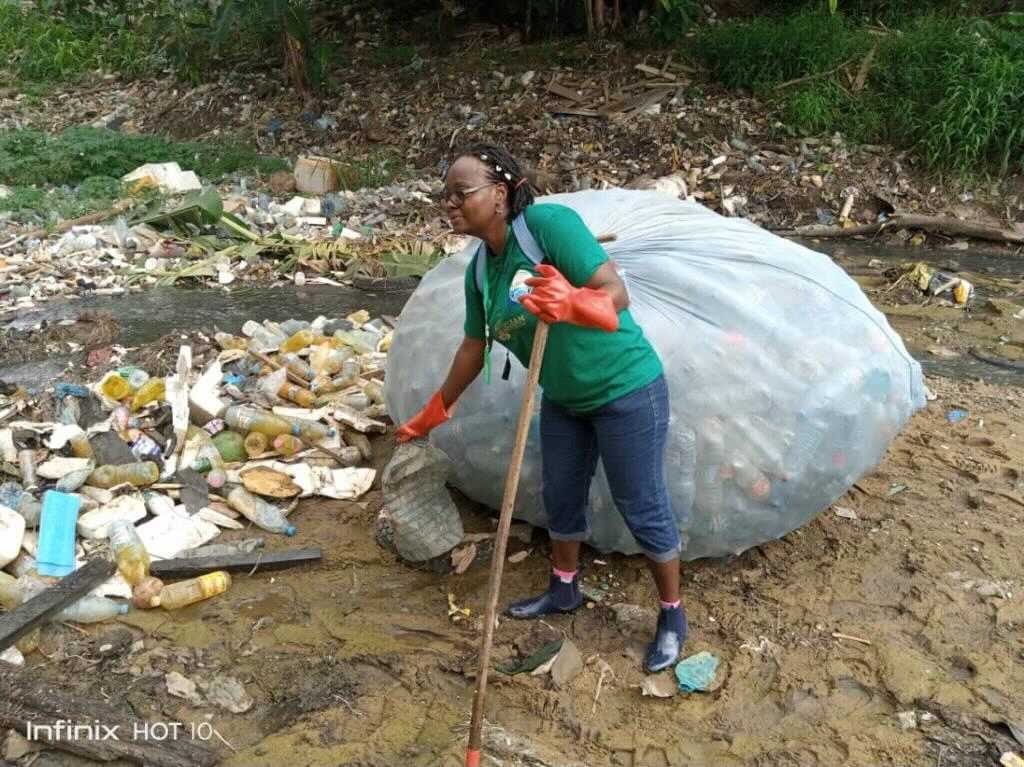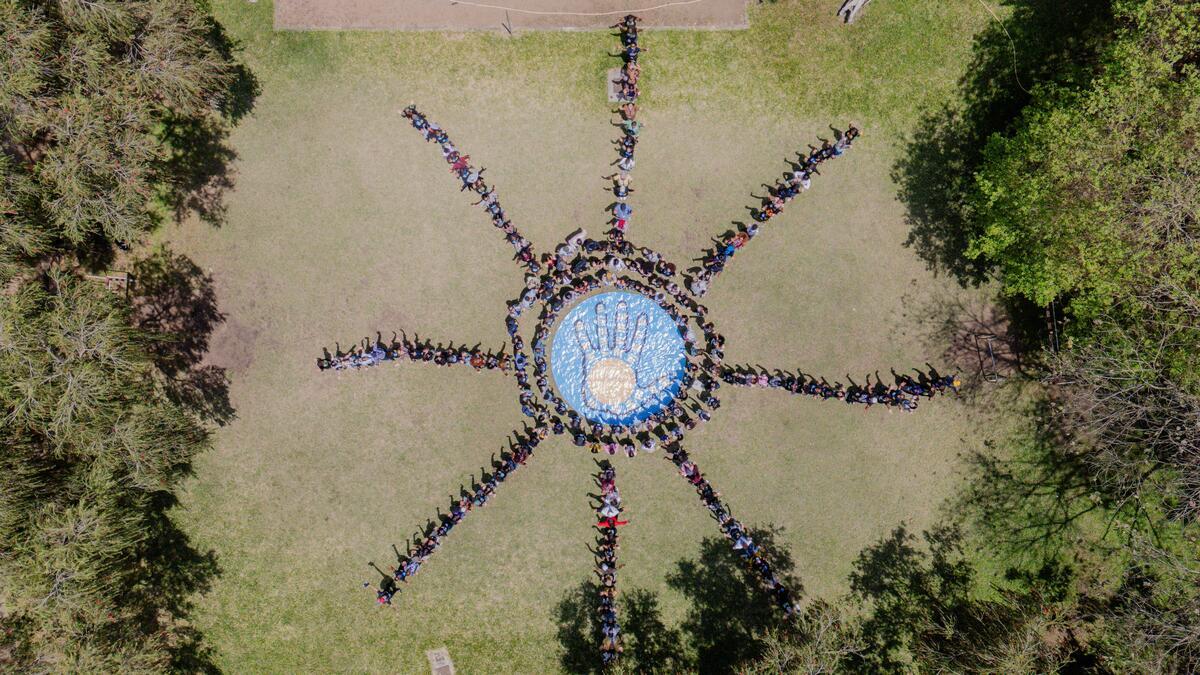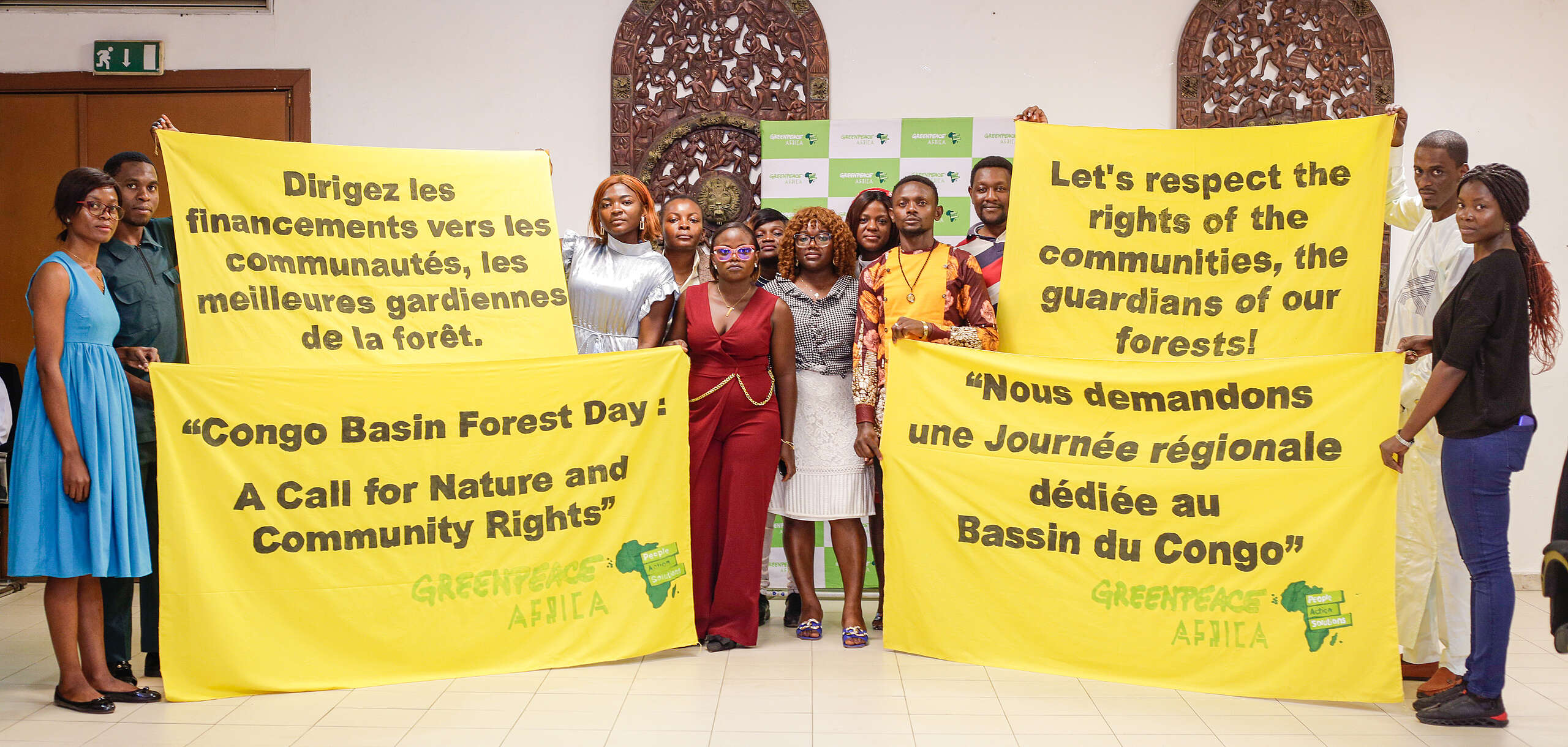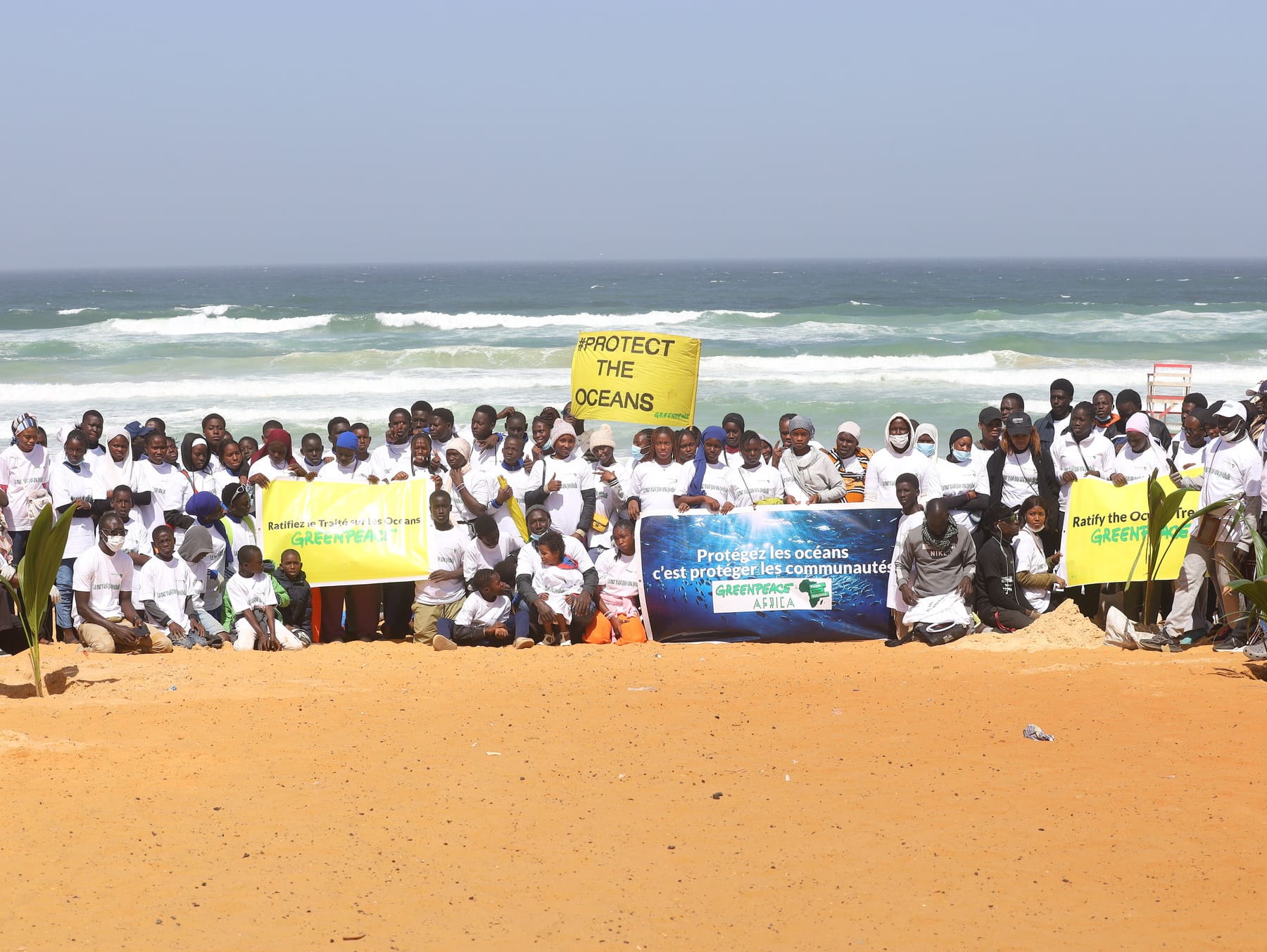
There are recurring floods in my city, Douala. Every year during the rainy season, we experience flooding of houses and shops, as well as pavements. All this affects the quality of water and our food, and has ruined many people’s lives as they lose their homes, livelihoods and even family members.
My name is Nathalie Wamja and I am a Greenpeace volunteer based in Douala, Cameroon. I would like to tell you how plastic pollution is wreaking havoc in my community, and causing a lot of danger for the people in my community.
I wanted things to change because I have family members who are experiencing major flooding which destroys their living environment, as well as a friend who has suffered the loss of his business. When a loved one is hurt or harmed by something, it calls out to us doubly.
I wanted to understand why there were so many floods in Douala. I also wanted to know why the quality of our food has changed over the years. So I started to look for answers. And what I found by observing the ditches, drains and any place where water stagnated was the enormous quantity of plastic waste at any given point. Plastic waste was preventing water from circulating and draining off of our streets.
I was very shocked at the extent of the problem. But, how dependent we have become on single-use plastic in our daily lives made me understand how the problem occurred. If you walk around my neighbourhood, you will see plastic bottles flooding our gutters and plastic packaging used freely in our markets, even though they have been prohibited from importation.
Knowing how destructive plastic has been in my city has prompted me to make everyday a “ZERO plastic” day. I refuse single-use plastic and do whatever I can do to inspire others to do the same: suggesting tips to live plastic-free, and if possible present alternative packaging solutions like reusable bags.
In my house you will hardly see any plastic packaging. Any single-use plastics you will find are washed and dried to reuse or give back to the sellers in the market since there is hardly any substitution. I shop with my own bags and usually I refuse to put my goods in single-use plastic.
But that isn’t enough. To combat plastic pollution on a daily basis, I spend my time raising awareness to stop plastic waste. I meet vendors at the market to educate them about the pollution of plastic packaging. I also listen to their opinions and their proposals or contributions to remedy the plastic problem; but in all honesty, the solutions to plastic pollution lie in the hands of those who produce and regulate plastic production.
I often help the Clean Cameroon association and the Autonomous Port of Kribi to clean the coast of Kribi and organize plastic waste clean-ups to clear the drains with Greenpeace volunteers and the Clean Cameroon association. But, since no matter how many clean-ups we do, there is always more plastic to replace it soon afterwards, we’ve joined #breakfreefromplastic brand audits to analyse the plastic we find at clean-ups to see who is responsible for the pollution.
What we need is a total ban on the production of plastic packaging, and we must systematically apply the ban on the import of plastic packaging. This will encourage companies to create alternative and more sustainable solutions like refill and reuse.
To make this a reality, I spread my ideas by writing mini-articles that I share via WhatsApp to raise awareness; I get people to sign petitions calling for stronger plastic restrictions; I also accompany fellow environmentalists who are carrying out work to improve plastic waste management in the city of Douala. And one day, I hope there will be no more floods because of plastic waste in my city.
Nathalie Wamja is a Greenpeace volunteer in Douala, Cameroon.



